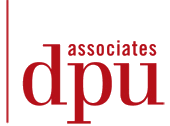
New book on multilateral organisations (Desmond McNeill)
Submitted by frankie on Fri, 2009-04-10 12:00.
McNeill 2022
In order to understand what might be called the political economy of morality, the book introduces the concept of moral authority, arguing that multilateral organisations derive moral authority from being seen to promote the well-being of people of the world, and that this is an important resource for them, both in justifying their existence and maintaining their position in the multilateral system. But the case studies show that to enter the world of moral discourse, and adopt the language of ethics and human rights, constitutes a challenge to these institutions, and to global power relations. The book explores the different ways in which this plays out in each institution, and seeks to understand these differences by examining the dynamics of multilateral organisations engaged in the common endeavour of poverty reduction.
The views expressed in 'Recent News & Reflections' are those of the author and do not necessarily reflect those of any of the governments, organisations or agencies with whom they have been working.
Desmond McNeill has recently published a new book, co-authored with Asun Lera St Clair, critically assessing what multilateral organisations say and do in the realm of ethics and human rights. (Global Poverty, Ethics and Human Rights: the role of multilateral organisations, 2009).
One important influence on multilateral organisations is ideas, and their significance has been noted in recent years, with the World Bank and UNDP, in particular, emphasising their role as knowledge-brokers. Because of their continuing search for greater financial support, another recent phenomenon affecting multilateral organisations has been their encouragement of public-private partnerships. These two influences on the multilateral system – ideas and material resources - are explored in Desmond’s earlier works (Bøås and McNeill, 2004; Bull and McNeill, 2007). The first book examined how ideas are used and abused as they pass from academia to the world of policy-making. Here, he examined the fate of concepts such as the informal sector and social capital. The second book was on public-private partnerships. The present book represents, in a sense, the completion of a trilogy, (all available in paperback from Routledge) on multilateral organisations, dealing, as it does, with a third and often underrated aspect of multilateral organisations – the moral dimension.
This latest volume is described as follows, in the blurb:“Severe poverty is one of the greatest moral challenges of our times. But what place, if any, do ethical thinking and questions of global justice have in the policies and practice of international organizations? This books examines this question in depth, based on an analysis of the two major multilateral development organizations - the World Bank and the UNDP - and two specific initiatives where poverty and ethics or human rights have been explicitly in focus: in the Inter-American Development Bank and UNESCO.There is in the world today no ‘global state’ or ‘global government’; but international organisations such as the World Bank and the UNDP are the nearest thing we have. How are they responding to this challenge? Do they perceive their role as promoting global justice? They may be adopting the discourse of ethics and human rights; but what does this imply for their policies? To address these questions requires insights from international relations, sociology of knowledge and applied ethics. These are the theoretical perspectives that are brought to bear in the book. And in empirical terms, it explores the question by reference to four specific case studies. Two of these, though relatively modest, are relevant because they very explicitly relate to the central concern of the book: one is the ‘Poverty as a Human Rights Violation’ initiative of UNESCO, the other is the ‘‘Initiative on Social Capital, Ethics and Development’ of the Inter-American Development Bank (IDB). Neither has been particularly successful; and it is revealing to examine why this is the case. But in order to gain a more generalized, systemic understanding of the challenge facing multilateral organisations the book starts by analysing the experience of the two major global development organisations – the World Bank and the UNDP – in dealing with the language of ethics and human rights. This provides a theoretical framework for better understanding the forces, both external and internal, that shape these multilateral institutions and determine how they respond to the ethical challenge of promoting global justice.The current development aid framework may be seen as seeking to make globalization work for the poor; and multilateral organizations such as these are powerful global actors, whether by virtue of their financial resources, or in their role as global norm-setting bodies and as sources of hegemonic knowledge about poverty.
The authors draw on their backgrounds in political economy and applied ethics, as well as their inside knowledge of some of the case studies, to show how, despite the rhetoric, issues of ethics and human rights have – for very varying reasons and in differing ways – been effectively prevented from impinging on actual practice.”
In order to understand what might be called the political economy of morality, the book introduces the concept of moral authority, arguing that multilateral organisations derive moral authority from being seen to promote the well-being of people of the world, and that this is an important resource for them, both in justifying their existence and maintaining their position in the multilateral system. But the case studies show that to enter the world of moral discourse, and adopt the language of ethics and human rights, constitutes a challenge to these institutions, and to global power relations. The book explores the different ways in which this plays out in each institution, and seeks to understand these differences by examining the dynamics of multilateral organisations engaged in the common endeavour of poverty reduction.
- 2009
- Global Poverty, Ethics and Human Rights: the role of multilateral organisations, with Asunción Lera St. Clair. Routledge (Forthcoming).
- 2007
- Development Issues in Global Governance: Market Multilateralism and Public-Private Partnerships, (with B. Bull). Routledge.
- 2004
- Global Institutions and Development: Framing the World? (ed. with M.Bøås). Routledge.
- 2003
- Multilateral Institutions: A Critical Introduction, (with M. Bøås). Pluto Press.
